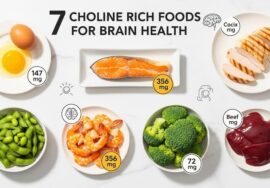Baking soda, or sodium bicarbonate, has been a trusted household staple for generations. While many people use it for cleaning and deodorizing, its benefits extend far beyond that. From oral health to reducing inflammation, baking soda offers natural and effective solutions for a variety of health concerns. In this blog, we’ll explore how baking soda can enhance your well-being in multiple ways.
Table of Contents
- Baking Soda for Oral Health and Hygiene
- Baking Soda for Preventive and Pediatric Dental Care
- Baking Soda for Inflammation and Muscle Recovery
- Baking Soda for Skin and Beauty
- Baking Soda for Digestive Health and pH Balance
- Baking Soda for Heart and Brain Health
- Baking Soda for General Wellness and Public Health
- Conclusion
1. Baking Soda for Oral Health and Hygiene
Maintaining good oral hygiene is essential for healthy teeth and gums. Baking soda is a natural and effective ingredient used in many dental care products, including toothpaste and mouthwash. Here’s how it helps:
- Neutralizes Acids: Reduces the risk of cavities and gum disease by balancing the pH in your mouth.
- Whitening Properties: Removes plaque and surface stains, making it a great option for teeth whitening.
- Balances Microbiome: Prevents bad breath and bacterial overgrowth.
Many oral health centers, such as the Colgate Oral Health Network, recommend baking soda as a gentle yet powerful ingredient for maintaining good dental hygiene. It is commonly found in professional dental care products, including those from 3M Oral Care and Northwest Dental Care.
2. Baking Soda for Preventive and Pediatric Dental Care
For children, pediatric dental care plays a crucial role in long-term oral health. Using baking soda in small amounts can:
- Cavity Prevention: Help prevent cavities without the need for harsh chemicals.
- Reduce Sensitivity: Neutralizes acids that erode enamel, reducing dental sensitivity.
- Support Preventive Care: Maintains a balanced pH in the mouth.
Regular use of baking soda in oral hygiene routines can contribute to better oral health outcomes, making it a beneficial addition to essential dental care practices.
3. Baking Soda for Inflammation and Muscle Recovery
Inflammation is the root cause of many health issues, including joint pain, muscle soreness, and chronic diseases. Baking soda can help:
- Reduce Muscle Inflammation: Promotes recovery from delayed onset muscle soreness (DOMS) and muscle fatigue.
- Enhance Nutrient Absorption: Improves the body’s pH balance, allowing for better absorption of nutrients like whey protein.
- Alleviate Localized Inflammation: Targets inflammation in areas such as the lower back, throat, and brain.
Research suggests that adding a small amount of baking soda to water can support rapid inflammation reduction and natural relief.
4. Baking Soda for Skin and Beauty
Baking soda is a versatile ingredient in beauty and skincare routines. Some of its benefits include:
- Acne and Blackhead Treatment: Its antibacterial properties help cleanse the skin and remove excess oil.
- Natural Deodorant: A great alternative to traditional deodorants, especially when other options fail.
- Hair Clarification: Removes product buildup, leaving hair feeling fresh and clean.
For those looking for a natural antiperspirant for the face or a homemade deodorant spray, baking soda can be a fantastic addition to DIY beauty products.
5. Baking Soda for Digestive Health and pH Balance
An imbalanced pH in the body can lead to various health issues, from acid reflux to poor digestion. Drinking a mixture of baking soda and water can:
- Aid Digestion: Relieve bloating and discomfort after meals.
- Maintain pH Levels: Support overall health by keeping the body’s pH in check.
- Regulate Vaginal pH: Especially beneficial for women dealing with pH imbalances after menstruation or sexual activity.
6. Baking Soda for Heart and Brain Health
Baking soda has been linked to heart and brain health by helping to reduce inflammation. Some of its benefits include:
- Lowering CRP Levels: C-reactive protein (CRP) is an indicator of inflammation related to heart disease. Baking soda may help lower these levels, promoting cardiovascular health.
- Improving Cognitive Function: By assisting in reducing brain inflammation naturally, baking soda may contribute to better cognitive function and mental clarity.
- Supporting Oral Health: Poor dental health has been linked to cardiovascular conditions. Maintaining good oral hygiene with baking soda can indirectly support heart health.
Drinking baking soda mixed with water has been associated with natural heart inflammation reduction, promoting overall cardiovascular health.
7. Baking Soda for General Wellness and Public Health
Beyond individual health benefits, baking soda plays a significant role in dental public health and professional dental care. Many dental care services and organizations, like the CareQuest Institute for Oral Health, advocate for accessible and preventive dental care, where baking soda is often a key element.
Baking soda is recognized during events such as World Oral Health Day, Dental Hygiene Month, and Oral Health Month as a simple yet effective way to promote oral health and overall wellness. Its affordability and accessibility make it a valuable tool in maintaining peak dental care and promoting a healthier lifestyle.
Conclusion
Baking soda is more than just a pantry staple—it’s a powerful natural remedy for oral health, inflammation, skin care, and overall wellness. Whether you are looking for ways to take care of your teeth, reduce body swelling, or enhance your oral hygiene, baking soda can be a beneficial addition to your daily routine.








